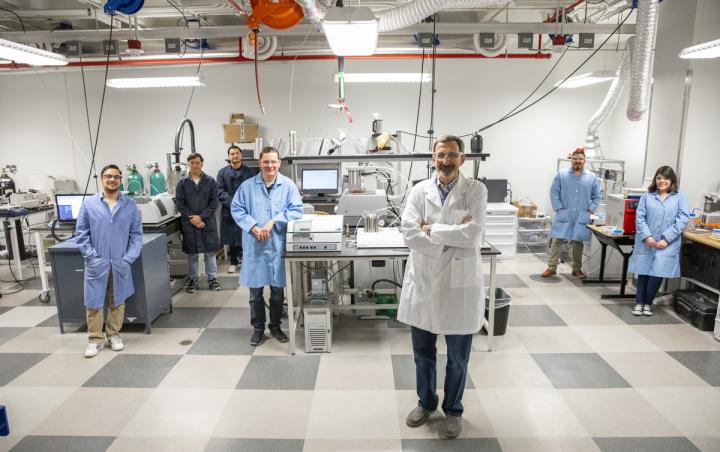
Credit: Ivan Pierre Aguirre/UTEP Communications
A mechanical engineering professor from The University of Texas at El Paso will lend his expertise to early-stage space exploration technology research through a $550,000 grant from NASA to investigate the viability of power sources in the extreme temperatures of space.
Evgeny Shafirovich, Ph.D., professor of mechanical engineering in UTEP’s College of Engineering, is principal investigator of the grant awarded through NASA’s Space Technology Research Grants program. The money will be used to investigate the use of metal-infused fuel sources — specifically lithium and magnesium mixed with oxygen and carbon dioxide — and their reactions in extreme heat and cold.
The challenge of powering and heating spacecraft is intensified in the vacuum of space and intensifies the further away the craft is from the sun, where solar panels provide less energy. Shafirovich’s reserach will explore storable chemical heat sources that can be controlled to provide heat and electrical energy.
“I am excited about doing research that may lead to the development of novel power systems for missions to very cold and very hot planets, where solar panels cannot be used effectively,” Shafirovich said.
His primary research interests are focused on the combustion of energetic materials and combustion synthesis of advanced materials for energy and aerospace applications. His recent and current research projects, which include grants from the U.S. Department of Defense, the Department of Energy and NASA, among others, include several topics such as green monopropellants, gas generators, combustion synthesis of high-temperature materials, and combustion-based methods for construction and power generation in space.
Shafirovich’s research team maintains and operates various equipment and instruments for studies on combustion of energetic materials. Students will conduct combustion experiments with laser ignition. The experimental part will be conducted at UTEP while modeling will be conducted at Northwestern University in Evanston, Illinois, by Vladimir Volpert, Ph.D., and Alvin Bayliss, Ph.D., associate professors in Northwestern’s Department of Engineering Sciences and Applied Mathematics.
“There are talented researchers outside of NASA, working at universities across the country, who are poised to help us look at challenging aspects of space exploration in new ways,” said Walt Engelund, deputy associate administrator of programs within NASA’s Space Technology Mission Directorate in Washington. “With the help of these institutions and principal investigators, NASA will accelerate innovation for critical space technologies.”
###
To learn more about Shafirovich’s work research, visit: https:/
Media Contact
Victor H. Arreola
[email protected]
915-747-6437




